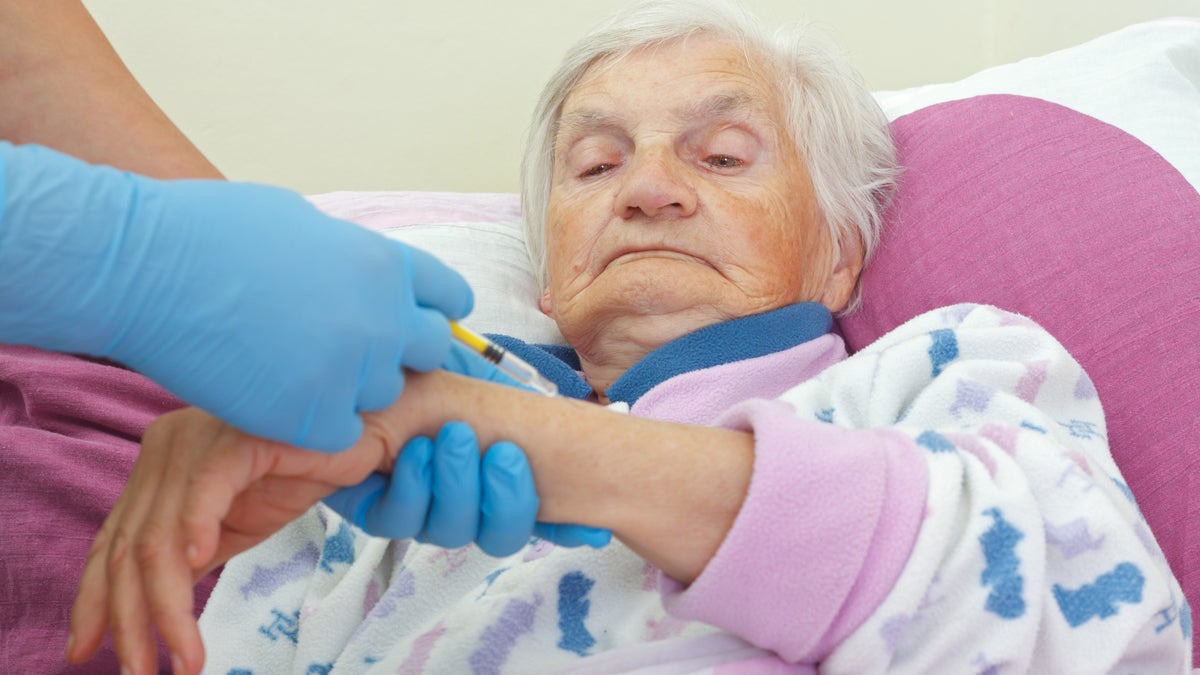Drexel researchers make progress on DNA vaccine targeting bacterial toxin
 Photo via ShutterStock) " title="ssimmunizationelderlyx1200" width="1" height="1"/>
Photo via ShutterStock) " title="ssimmunizationelderlyx1200" width="1" height="1"/>
(Photo via ShutterStock)
Scientists at Drexel University are putting a twist on the typical approach of vaccination to combat an increasingly common and difficult-to-treat bacterial infection.
In hospitals across the country, Clostridium difficile, or C. diff, is causing patients severe intestinal distress. Initial symptoms include diarrhea, nausea, and abdominal pain—but infection can quickly escalate to colitis, sepsis, and even death.
The bacteria are not usually harmful, but can be if antibiotics wipe out protective microbes in the gut.
“We on an everyday basis may be exposed to C. diff spores, but if you’re taking antibiotics, you may have your normal flora which are cleared by antibiotics and then you become very susceptible to this bacteria,” said Michele Kutzler, an assistant professor of medicine at Drexel University. “That’s what usually happens in the hospital setting.”
Once C. diff takes over, patients—who are often older—must receive additional antibiotic treatment.
“Individuals who are over 65, for example, when we put them on that 10 days of antibiotics, they clear the infection, they feel a little better, but what we find is that 25 percent of those patients usually undergo another disease course, so they get sick again,” said Kutzler.
To stop reinfection, physicians have sometimes turned to fecal transplants.
But Kutzler and her team are working on something different: a DNA vaccine that targets the bacteria’s toxins.
“We’re actually immunizing with a form of the toxin so that you’re going to produce an immune response that should be sustained,” she said, “and after two or three injections, you’ll have a memory response to the toxin.”
Mice injected with DNA corresponding to an innocuous portion of the toxin, followed by short electric pulses, produced high levels of neutralizing antibodies that protected them from a lethal dose of C. diff toxin.
Based on her preliminary results, published in the journal Infection and Immunity, Kutzler hopes to begin safety testing soon. She has partnered with Inovio Pharmaceuticals, which has had recent success in a clinical trial for HPV.
No DNA vaccines are yet approved for use in humans, although four exist for animals.
WHYY is your source for fact-based, in-depth journalism and information. As a nonprofit organization, we rely on financial support from readers like you. Please give today.

